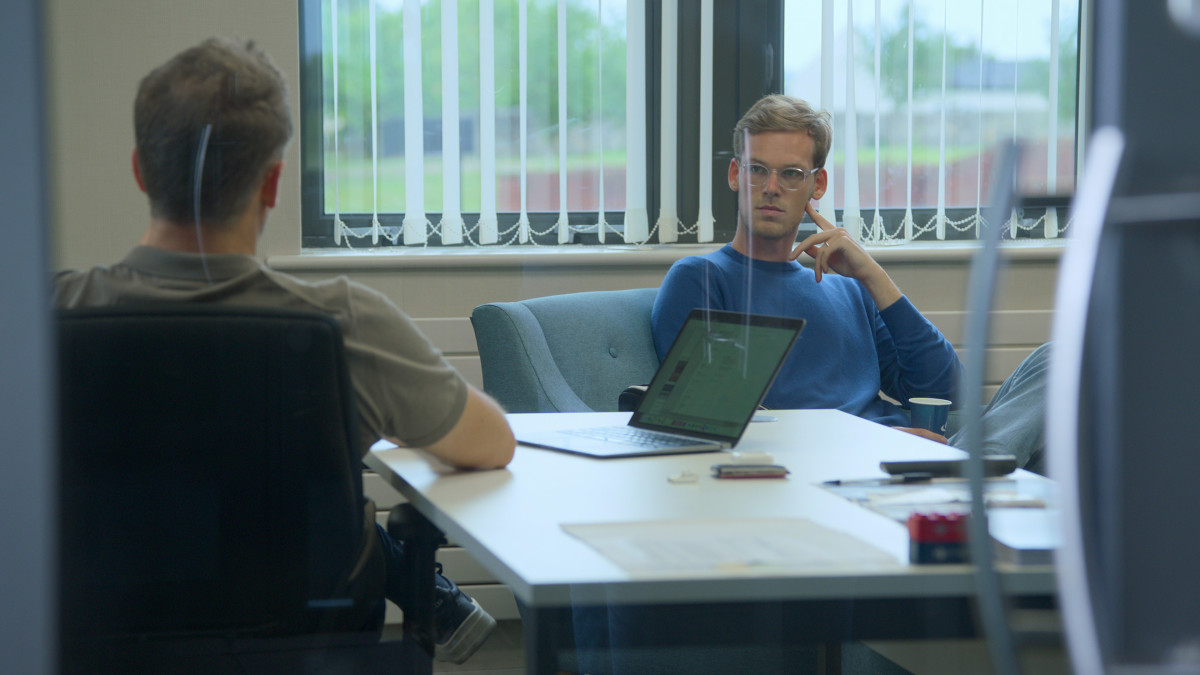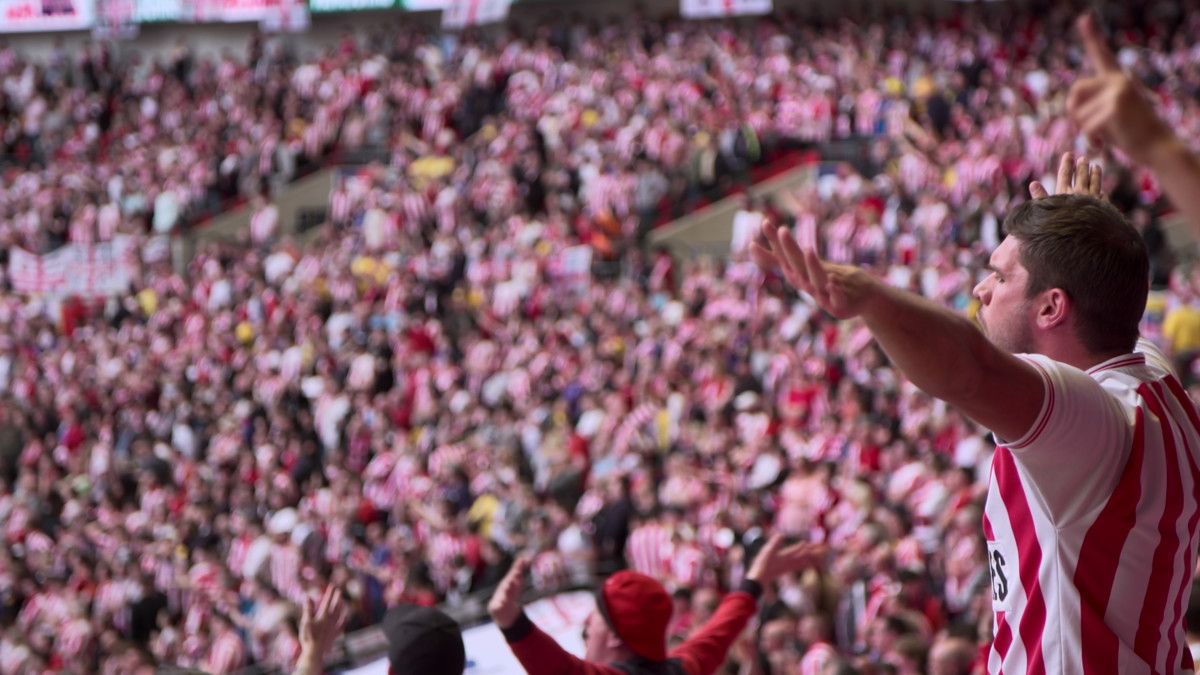Luke O'Nien: I have fallen in love with 'wonderfully bonkers' Sunderland

There is a very important quote in the Sunderland world: “I learned my trade at Arsenal, became a footballer at Manchester City, but Sunderland got under my skin. I love Sunderland.” Niall Quinn got it, and Luke O’Nien does too.
On February 13, the third and final season of Sunderland Til I Die is released on Netflix. It is many things, but mainly it is a celebration of loving Sunderland. Fittingly, O’Nien is one of the central threads of the series.
In 2018 when he walked into the ruins that was League One Sunderland, few would have predicted we would be here now. The Black Cats are battling it out for a return to the Premier League and O’Nien is the club captain and beating heart of the squad. After 45 minutes of his debut, even fewer would have predicted it.
Wembley roars and enraging Jose Mourinho: The greatest Luke O'Nien Sunderland moments
Few players become stalwarts at football clubs anymore. O’Nien has now surpassed 250 appearances for Sunderland, a milestone matched by just two other players (John O’Shea and Lee Cattermole) this century.
For us fans, loving Sunderland is part of our DNA. It’s a calling rather than a choice, a privilege. It’s like winning the lottery of life, albeit often one of those nightmare stories you read in the tabloids about lottery winners ending up thoroughly miserable.
However, as Niall Quinn said, Sunderland is a club that gets under people’s skin. It doesn’t matter where you are from, Sunderland is a club that captures your heart and makes you fall in love with it – and it’s got as firm a grip now on Luke O’Nien as it has anyone.
Asked what it was about Sunderland that made people fall in love with the club, O’Nien told Sunderland Nation: “That's the best question I've had today. I really enjoyed that. Really good question!”
“You grew up loving the club from the get-go because you're a fan and I've kind of developed that. I've fallen in love through playing. But why is that? That's a good question.
“I don't think it's just a singular answer. I think there's many, many reasons. I think, for example, you drive into the stadium and you see the stadium appear… that moment in isolation is special. Then you pull up and the fans are outside… you go into a game and there's a few hundred fans here wanting to have a picture.

“There's a moment in isolation and you go downstairs, get into the changing rooms and then you walk out the tunnel for like a match in the atmosphere. That moment in isolation is special.
“Then taken to a fact that you score a goal or you win a tackle and the crowd go nuts. I think it's the accumulation of so many moments that are just so uniquely special all put together.
“And I think that will be the formula for why I fell in love with the club and maybe yourself as well. There's so many individual events that are filled with so much emotion that once you get that tiny taste of what it could be if you get it right, that's like a drug that I think people keep coming back for.
“And for a player, it might be that winning moment or that tackle or that goal that wins the game. For the fans it would be the same thing… that tackle that they can cheer or the goal that can win the game.
“I think we're all doing it in the same way, but it's like a drug that I think everyone gets a taste of at first, and then you've got the hope of it's going to happen any moment now and it does happen and once you have that one moment I think you're hooked.”
If Sunderland Til I Die is looked at like a trilogy, then series three wraps it up in beautiful style.

Season one was Star Wars: A New Hope, where ill-fortune had befallen good people. Season Two was The Empire Strikes Back, in which things get really dark for the heroes. Season Three is the Return of the Jedi, in which we all end up happy with demons vanquished as we party with Ewoks looking ahead to an exciting new future free from the pains of the past. Okay, the Ewoks were more figurative than literal, but you get the gist.
It begs an important question, though: Does adversity, and the unending, indefatigable ability to come through it, make Sunderland truly shine at its brightest?
“I think adversity is one of the most important things for any individual, for any club, because I think that's where you learn,” O’Nien said. “You learn the most about yourself, you learn the most about the club and you can then redesign.
“I had an adversity at the start and that was the drive for my career to date. Because when you have the adversity, you kind of fail and then you redesign yourself.
“You don't change the whole core of yourself, but like that version didn't quite work. I'm going to keep my core, but what sort of things do I need to change to make it work? So I think adversity is important.
“I wouldn't say you fall in love with the club for what it could be. I think you fall in love with what it is. I think football fans are the most wonderful creatures, but I think also they're the most crazy.
“I'm just as guilty because, yeah, it's the hope that you go into every game. One game you're getting promotion, one game you're getting relegated, all in the space of two weeks.
"And it's wonderful. It's wonderfully bonkers.”
Sunderland Till I Die Series 3 is released on Netflix on February 13. Series 1 and 2 are already available.
READ MORE SUNDERLAND NEWS
- Sunderland contract situation: Who is nearing the end of their current deal?
- Top Ten: Sunderland's best ever January signings
- Real Madrid star Jude Bellingham names two former Sunderland players as his heroes
- Jordan Willis and seven other Sunderland careers ruined by injury
- Sell to thrive, not sell to survive: The Sunderland 'model' explained - in their own words
- Luke O'Nien and eight other Sunderland players who successfully changed positions
